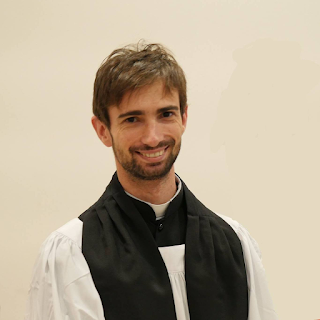Reading
Luke 12:1-7
1 Meanwhile, when a crowd of many thousands had gathered, so that they were trampling on one another, Jesus began to speak first to his disciples, saying: “Be on your guard against the yeast of the Pharisees, which is hypocrisy. 2 There is nothing concealed that will not be disclosed, or hidden that will not be made known. 3 What you have said in the dark will be heard in the daylight, and what you have whispered in the ear in the inner rooms will be proclaimed from the roofs.
4 “I tell you, my friends, do not be afraid of those who kill the body and after that can do no more. 5 But I will show you whom you should fear: Fear him who, after your body has been killed, has authority to throw you into hell. Yes, I tell you, fear him. 6 Are not five sparrows sold for two pennies? Yet not one of them is forgotten by God. 7 Indeed, the very hairs of your head are all numbered. Don’t be afraid; you are worth more than many sparrows.
Comment
Thousands of people surround Jesus drawing the background of this Gospel passage, opposed to the disciples, to whom he first addresses (v. 1); disciples whom he calls friends (v. 4), a term used only once in the synoptic Gospels, but which is frequent in the Gospel of John. The Lord invites them to be vigilant, to protect themselves from hypocrisy, which here is compared to yeast, due to its ability to spread and multiply in the community.
In the New Testament, we find both positive and negative associations with the image of yeast. For example, in the synoptic Gospels (Mt 13:33 and Lk 13:20-21) the yeast, mixed by a woman with three mixtures of flour, is compared to the kingdom of God. In the first letter to the Corinthians (1 Cor 5:6-7) Paul contrasts the old leaven with the new leaven, that is the immorality in which the recipients of the epistle lived before knowing the gospel and the righteousness to which conversion calls them.
The leaven of hypocrisy is the tendency to act with duplicity and to deceive one's interlocutor, an attitude that we often find described in the Psalms: "With their mouth they bless and curse in their hearts" (Ps 61:5); "They stir up disputes and set snares, they observe my steps, to attempt my life" (Ps 55:7). Just before this Gospel passage, the evangelist Luke show the invectives of Jesus against the Pharisees, reporting that these "began to oppose him fiercely and to besiege him with questions, waiting to catch him in something he might say" (Lk 11:53-54).
The external image of the blamelessness of the Pharisees is in contrast with the real intentions of the heart. Every believer is called to consistency between being and appearing: he is at stake in the survival of his own integrity (v. 5).
Jesus contrasts the attitude of the religious leaders with what the action of his disciples must be: a frankness in speaking, sheltered from any "esoteric" drift. In fact, there is nothing of the evangelical proclamation that should be kept in the secret of the rooms of a priestly caste, rather than be revealed in an open and understandable way. The duty of truth is such that it must be fulfilled even where our very life is in danger, with full trust in divine providence.
The example of the five sparrows sold for two pennies - the equivalent of two hours' wages - attests that the One who is in heaven is concerned with the smallest details and events of his creation. Jesus invites us not to fear, to be courageous witnesses of the truth, to let his light shine, and to make his voice resound.
Prayer
Place, o Lord, in our hearts and in our communities, the good leaven of your word, so that faithful to it we can grow in holiness and justice before your eyes. Amen.
- Rev. Dr. Luca Vona

